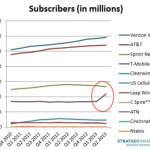by Rob Moll
Can a business love? Well, “It’s what makes a Subaru a Subaru.” It was hearing that tag line and my visceral rejection of it that got me wondering.
There is no shortage of businesses claiming to love. A heart and the ticker symbol LUV symbolize Southwest Airlines, which flies out of Dallas’s Love Field. For Joel Manby, president of Herschend Entertainment—owner of the Harlem Globetrotters and amusement parks like Dollywood—Love Works. That’s the title of his book about how Herschend does business differently, based on Christian values.
Love however, is something people feel, which doesn’t seem to apply to institutions, but it is also an action, which certainly could. There is some ambiguity and controversy around the idea that a corporation can have the attributes of a person. When the Supreme Court ruled in Citizens United vs. Federal Election Commission that corporations have free speech rights, allowing them to spend money on politics, many people objected that corporations aren’t people. They can’t vote, so why can a business advocate for politicians or political causes?
If a company has free speech rights, should it have religious freedom rights? Once again, religion is something for people, but not institutions, except for churches and ministries that channel and develop a person’s faith or give people the means to express it. At least to some degree, people do express faith through their work. According to the Supreme Court’s Burwell v. Hobby Lobby ruling, a closely-held company can express the religious views of its owners. But those rights are probably limited to certain kinds of companies, not publicly traded ones, and even a closely-held firm may not be able to discriminate in the customers it serves based on religious convictions.
Despite much Christian support for Hobby Lobby in its legal case, many Christians might object to the idea that a company is a Christian company. We like to say that Christian artists—musicians or painters—are artists who happen to be Christian. The artist’s faith informs the kind of art produced, but that doesn’t make the art Christian art, even though one might hope that an excellent artwork would in some way draw an appreciator closer toward God in a way consistent with the values of the medium.
I think a corporation can love in the same way. A company can indeed express values and character traits in certain limited ways that are consistent with the “medium” of the marketplace. So, yes, a company can love.
Love, from a Christian perspective, isn’t about feeling but about action. Love Does. So a company should be able to find the ways in which it can express love—especially to its customers and employees.
Customer service is an easy example. It’s a direct way in which a company can love its customers. When there is a problem, does it get fixed quickly and in a way that is satisfying to the customer? Has the company identified processes for dealing with common problems? Does the company create structures in which its employees are discouraged from fixing problems? For example, do call center staff have goals for how many phone calls they take or are they encouraged to fix problems even if it takes a long time?
That’s the difference between a company that loves and one chooses not to expend the effort to love. That’s the difference between thinking of others and thinking of oneself. Even a company can be self-centered—choosing to serve its own interests at the expense of others. I think it’s also the difference between a quality company and the average business. We want to do business with companies that treat us well, that give us a fair price in exchange for a quality service or product.
So, is Southwest Airlines really built on love? Is that what makes a Subaru a Subaru? Is it love that makes Herschend Entertainment work? To the extent that these businesses embody the apostle Paul’s definition of love—that is, they are kind, patient, protecting, trusting, not self-seeking—then maybe so.
———–
Unless otherwise noted, Eventide is not an investor in companies discussed in this or other of our ‘faith and business’ columns, nor is there meant to be an endorsement, explicit or implied, of the entirety of any company’s business model, much less of all of a company’s business practices. Rather, aspects of the business model or practices of particular companies are discussed only to help illustrate contemporary examples of larger ‘faith and business’ topics.
The material provided herein has been provided by Eventide Asset Management, LLC and is for informational purposes only. Eventide Asset Management, LLC serves as investment adviser to one or more mutual funds distributed by Northern Lights Distributors, LLC, member FINRA. Northern Lights Distributors, LLC and Eventide Asset Management are not affiliated entities.
4190-NLD-3/30/2016











